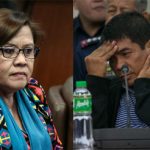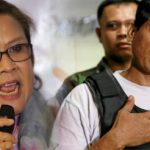After the surprise burial of the remains of the late dictator Ferdinand Marcos on November 18 at the Libingan ng mga Bayani, some people started suggesting that he should be exhumed. In fact, opposition lawmaker, Albay Rep. Edcel Lagman, filed an 8-page pleading with the Supreme Court on Monday, November 21, to exhume the dictator’s remains since his interment at the LNMB was “premature, precipitate, and irregular,” given that the high court’s decision allowing the burial was not yet final and executory.
His motion also emphasized how the exhumation intends to “effectively censure and discipline” the Marcoses and the defense and military officials for carrying on with the burial that was a “disrespect” to the SC.
On November 23, Ruben Carranza posted on his Facebook about the planned exhumation of the remains of dictatorship generals in Pamplona, Spain.
“Can exhumations of those who enabled a dictatorship be a path to transitional justice?” he asked.
“In Spain last week, the local government of Pamplona run by the leftwing Podemos party & by Basque nationalists used a law passed by the former Socialist government to start the exhumation and removal of two dead dictatorship generals from a cemetery for heroes,” he added.
[ads1]
Carranza then addressed Filipino activists, suggesting that they should look for a Philippine law that can be used as their ground in saying that Marcos’ burial is against state policy, adding that the 2013 reparations law for the Martial Law victims could be one.
“Filipino activists should think about it: is there a law that can be used as basis to say a hero’s burial for a dictator is inconsistent with State policy? [I can think of one: the 2013 reparations law for Marcos dictatorship victims, that I helped write. I should write a longer post next to discuss how that could be argued even after the dismissal of the burial case.] The lesson: political power, not law, will decide how long the lie of a dictator-as-hero can be maintained,” Carranza wrote.
In his post, he also attached a link to the article about Spain’s plan to dig up the remains of the dictatorship generals, while emphasizing this quote from the article:
“This isn’t for the sake of revenge, but only to comply with the law and do justice to our history,” he explained.
The article from the Spanish site The Local said that the Navarian council decided to exhume dictatorship generals Emilio Mola Vidal and Jose Sanruip Sacanell from the Monumento a los Caidos (Monument of the Fallen) and return their remains to their families for “private burial.” Their decision was based on their interpretation of the Historical Memory Law that called for the removal of the symbols of the regime of Spanish dictator Francisco Franco.
This law requires the removal of any fascist symbols in public and changing the names of plazas and streets named after Franco and his henchmen.
The exhumation is set to take place this November under the supervision of a forensic archaeologist who has overseen more than 400 exhumations of unmarked mass graves during the Civil War.
The exhumation, though, was protested against by the relatives of General Jose Sanjurjo, who was one of the top conspirators in the military uprising that caused the Spanish civil war.
[ads2]
But for Pamplona Mayor Joseba Asiron, he said: “We can’t understand why this hasn’t been done before. It will be carried out with the utmost discretion and respect for the families of those interred within.”
Asiron added,“This isn’t for the sake of revenge, but only to comply with the law and do justice to our history.”
Carranza is the director of the Reparative Justice Program at the International Center for Transitional Justice (ICTJ) and a former commissioner at the Philippine Commission on Graft and Corruption (PCGG).
Sources: (news.abs-cbn.com, facebook.com, thelocal.es, ictj.org)
[ads3]


